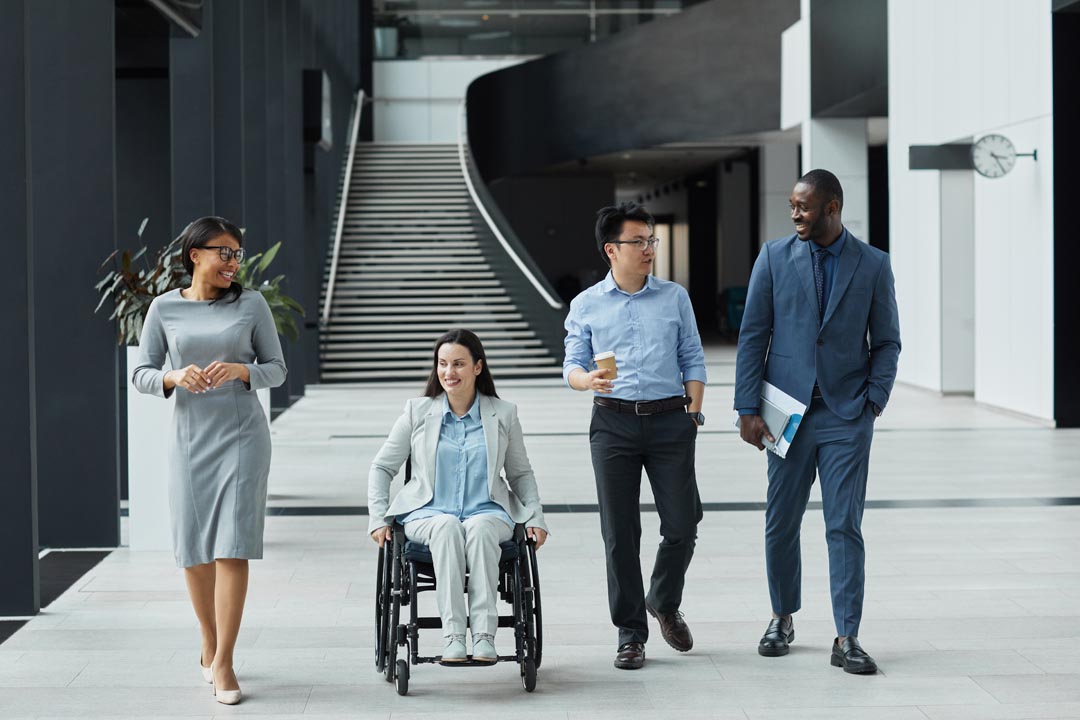Claudia Cooney on changing perceptions about women and disability.
Earlier this year, Britain celebrated its 100th anniversary of some women being given the right to vote. Because of this, 2018 has been dubbed Year of the Woman and has seen celebrations that commemorate the vast contributions from women towards modern society, women’s rights and admiration for how far the UK has come in the fight for equality.
However, in highlighting the good, attention has also been drawn to how far we have yet to go.
Almost daily, a female role model will feature on the front page, pitted against her male colleagues as it is publicised how much he earns comparatively. Or headlines reporting yet more sexual harassment in the workplace.
While we continue to be astonished by the amount of inequality that still exists, there is no let-up from people speaking out; the messages are loud and clear, and organisations are beginning to step up to take more effective action. However, there is still a group of women who appear to have been left behind.
Current perceptions
Women with disabilities make up roughly 5% of the world’s female population, yet a recent article in The Guardian by Anne Wafula Strike, a British Paralympic wheelchair racer, highlighted the fact that disabled women are still struggling to find their place in the women’s movement, and high-profile campaigns such as #MeToo are a reminder of what a long way there is to go before they can say that their voices are being heard.
43% of the British public say they do not know anyone who is disabled and many are concerned that they will do or say the wrong thing when talking to disabled people or about disability.
She wrote: “The lack of disabled role models is a serious problem. For example, in the recent commemorations of the centenary of women’s suffrage, Rosa May Billinghurst, known as the ‘cripple suffragette’, barely featured. Similarly, when we talk about pay gap, we are still predominantly talking about able-bodied women.”
Nidhi Goyal, a blind comedian and author who is an activist, trainer and researcher working on disability rights and gender justice, said that many disabled women are not considered ‘woman enough’.
“Their capability is questioned – can she cook? can she raise children? – along with their sexuality and entitlement to equity or rights. If they fail to meet idealised expectations about how a woman’s body should look, they are deemed incapable of providing care.”
According to a report by national disability charity Scope entitled Current Attitudes Towards Disabled People, more than a third (36%) of people tend to think of disabled people as not as productive as everyone else; nearly a quarter (24%) of disabled people have experienced attitudes or behaviours where other people expected less of them because of their disability; and a staggering two-thirds (67%) of the British public feel uncomfortable talking to disabled people!
It is important to realise that a positive attitude towards disability is equally as important as barrier-free physical access.
Different views
The medical model of disability focuses on the person and the disability as the problem. It suggests that the power to change disability lies with the medical profession who are best placed to take those with disabilities closer to perceived ‘normality’ through the provision of medicines, institutions and cures.
This school of thought would very much attribute the aforementioned person’s disability as the barrier to climbing the steps and entering the building.
The social model of disability does not focus on a cure as the solution to disability, rather the removal of those social and physical barriers that prevent people with disabilities from belonging to, and being valued in, their local community.
Even though TV, film and literature often persuasively represent medical model thinking, anti-discrimination legislation draws upon the social model stance.
According to the Scope report, much of the discomfort people feel about disability may stem from a lack of understanding. 43% of the British public say they do not know anyone who is disabled and many are concerned that they will do or say the wrong thing when talking to disabled people or about disability.
Changing perceptions
Like many challenges we face, education is key to overcoming them. First, increasing awareness and, second, teaching people how to confidently champion inclusion in everyday situations is the only way we will get change. As the Scope report points out, it is often only simple adjustments that are required to help reduce barriers disabled people often face.
This is an abridged version of a feature from May’s TJ magazine. To get the full insight, subscribe here.
About the author
Claudia Cooney is lead director at Righttrack Consultancy.



